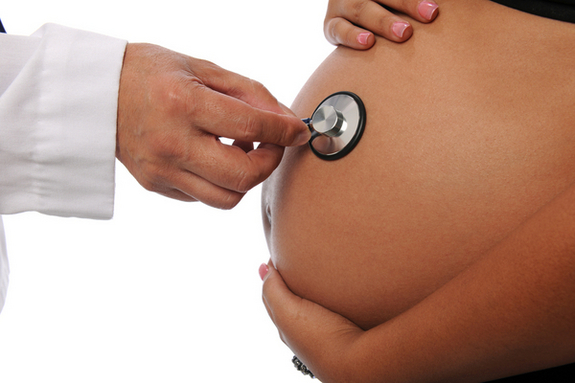Super-Fertile Women May Have More Miscarriages

For years, researchers have searched for the reason why some women experience recurrent miscarriages. Now, a new study suggests some women's uteruses are just more conducive for implanting embryos, both healthy and unhealthy ones.
The results may explain why these so-called "super-receptive" women often have multiple miscarriages.
"This is important as — for the last 60 years— the whole field believed that miscarriage is the consequence of maternal rejection of the fetus because of immunological differences," Jan Brosens of the University of Warwick told LiveScience. Brosens is a co-author of a new paper published online Friday (Aug. 24) in the journal PLoS ONE.
The research indicates something different is happening. "Recurrent miscarriage can now be seen not as failure to carry a pregnancy, but perhaps as failure to prevent one, in other words super-fertility, but with distressing consequences," Nick Macklon, a co-author of the paper and a professor of obstetrics and gynecology at the University of Southampton in the U.K., told LiveScience.
Overall, more than 10 percent of pregnancies end in miscarriage in the United States, and 1 to 2 percent of couples have more than three miscarriages in a row, known as recurrent miscarriages. Sometimes, doctors can point to a reason why the pregnancy was lost — a genetic abnormality or a uterine abnormality — but in about half of the cases, they can't identify a cause. [Blossoming Body: 8 Odd Changes That Happen During Pregnancy]
Brosens, Macklon and their colleagues looked at samples from the uteruses of six women who suffered recurrent miscarriages, and six who had normal fertility. In the lab, the researchers placed high- and low-quality embryos on channels in between strips of uterus cells of the two groups of women. Cells from the women with normal fertility rejected the low-quality embryos and began to grow toward the high-quality ones. Cells from the women with recurrent miscarriages reached out and grew toward both the high- and low-quality embryos.
This new insight into the biology of implantation offers possibilities for treating and preventing recurrent miscarriages, said Macklon. He said that a new diagnostic test could be developed to identify low embryo selectivity, but added medical treatments could also improve the selectivity of the uterus.
Sign up for the Live Science daily newsletter now
Get the world’s most fascinating discoveries delivered straight to your inbox.
In addition, knowledge of super-fertility may help women understand miscarriage in a new way. "Many sufferers of recurrent miscarriage feel that they failing as mothers, because they seem to reject lots of pregnancies. In fact, the opposite may be the case: They are super-fertile, allowing embryos which would normally be allowed to implant and survive long enough to show up as a pregnancy, before miscarrying," said Macklon.
Brosens added that while this theory doesn't explain all miscarriages, the research team has new data on the biology underpinning maternal recognition and rejection of abnormal embryos, which they hope to publish soon.
Follow LiveScience on Twitter @livescience. We're also on Facebook & Google+.
World's first baby conceived with 'automated IVF' has been born
Man gets sperm-making stem cell transplant in first-of-its-kind procedure










